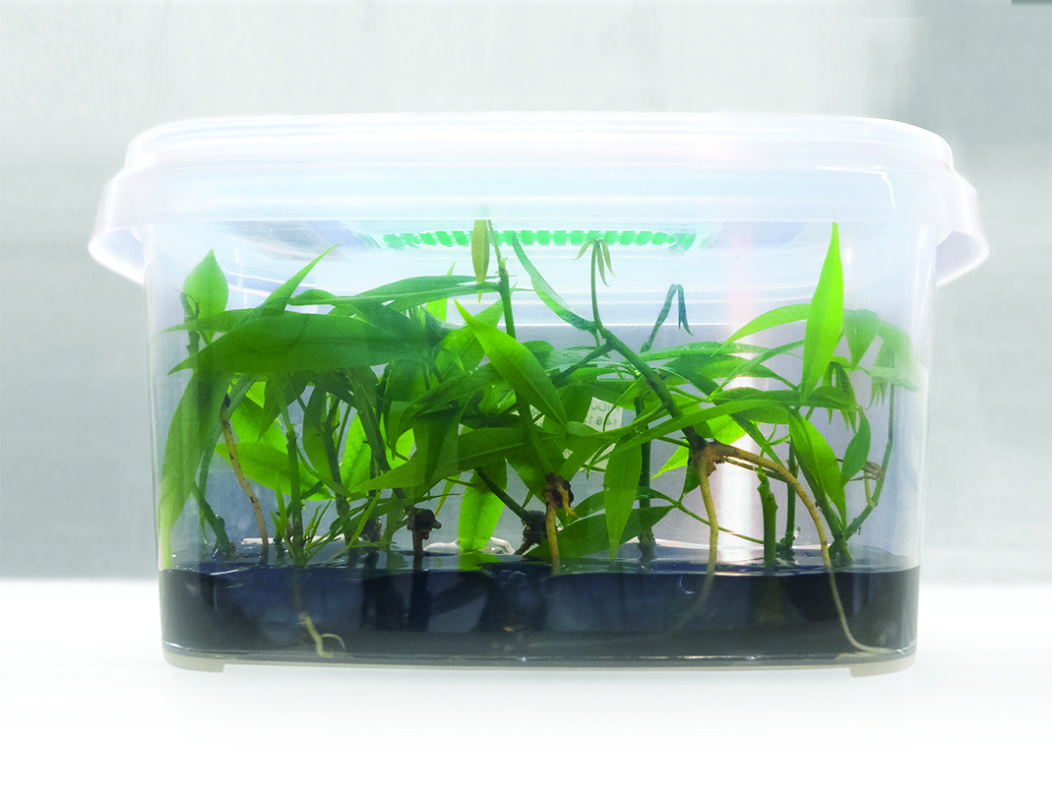Microbox Advantages
Depth Filtration
Microbox filters are based on a depth-filtration principle as opposed to surface filters. Each filter uses randomly arranged fibers (HEPA principle) to effectively trap fungi spores, mites, trips and other contaminants. Depth filters limit dehydration. The gas exchange is controlled by the length of the filter plugs, longer filter plugs mean less gass exchange thus less dehydration.
When using hermetically closing containers without filters, gas exchange of CO2 and O2 is poor, concentrations of gasses like ethylene are far from optimal and hyperhydricity can occur. The gas exchange of the Microbox was found to be similar to the gas exchange of ‘air leaking’ containers without filtration system, but the filtered Microbox has the bonus of added contamination protection.

Shorter weaning time.
Yet another major advantage: thanks to adequate gas exchange during their stay in the vessels, the plantlets have been well prepared for their autotrophic life and therefor require less weaning.
Eco-responsible. Reusable. Sensible.
Our untreated (non-gamma irradiated) Microboxes can be reused multiple times depending on size and form. In general, smaller containers can be reused more often than larger ones, round ones more than square ones. Exceptions are the TP3000 and TP5000, which are not reusable. The single use gamma-sterilized containers can not be autoclaved and can therefor only be used once. Each Microbox is 100% recyclable. Lid and container are both ecologically and economically smart.
Clearly superior.
The hermetically-sealing lid with filter, and the box itself, are made of clear, resilient polypropylene.
You have an accurate view of your work for greater quality control.
To guarantee a hermetic and contaminant-resistant seal, make sure to securely snap the lids. Specifically for this perfect closure, we have developed our easy-to-use compact lid sealer for the most reliable seal of all.
